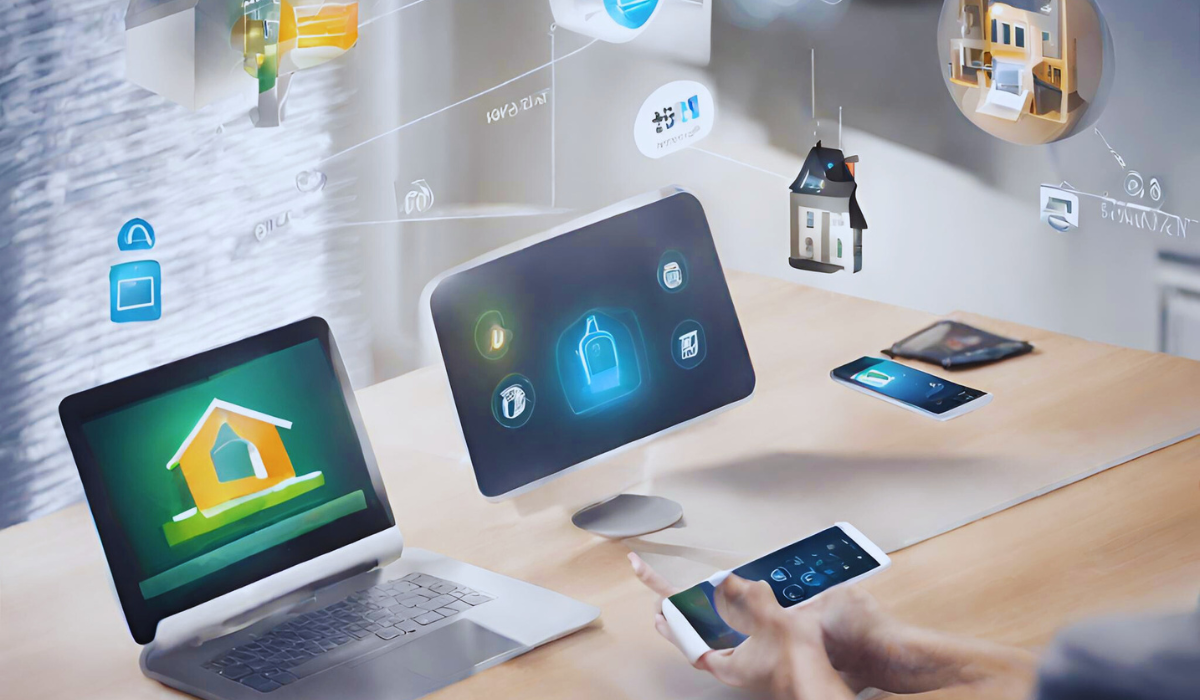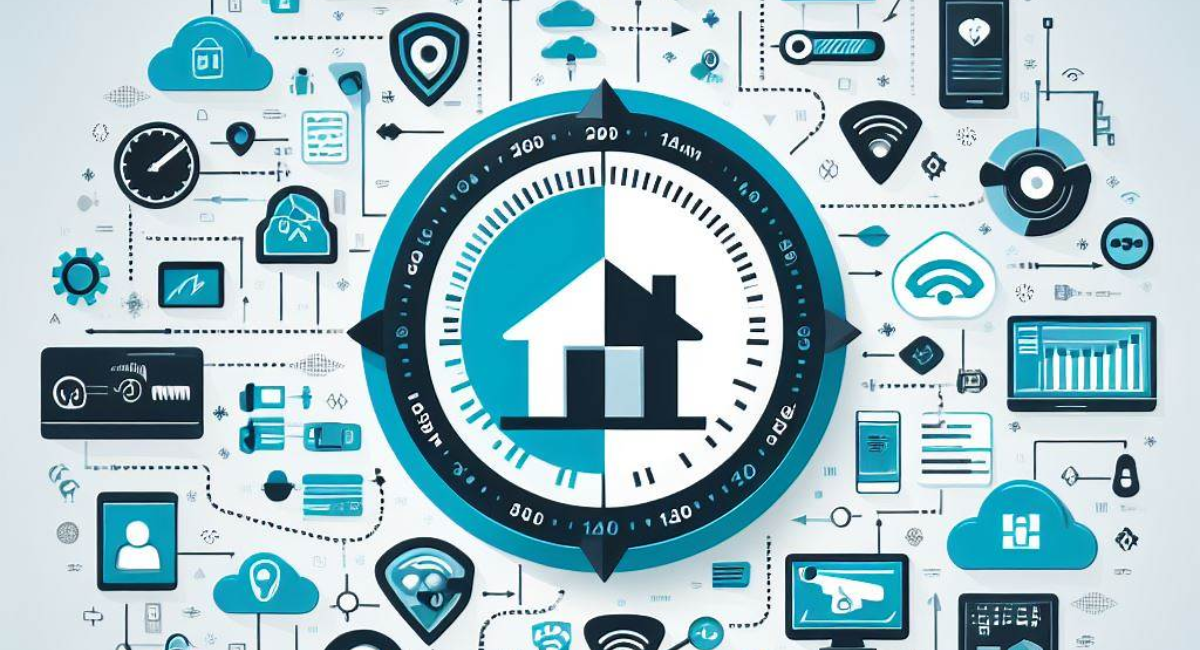Abode Security’s data usage varies based on numerous factors, including the number of cameras and sensors, video quality, frequency of motion detection, and number of connected devices. During idle times, its data consumption is minimal. Still, data usage may increase during active monitoring, especially with high-resolution video recordings and frequent motion detections. Users can manage and reduce this data consumption by adjusting system settings and utilizing data-saving features provided by Abode.
Home security systems have become essential to many households in today’s digital age. They provide peace of mind by protecting our homes and loved ones from potential threats. However, data usage is an important aspect to consider when using a home security system. How much data does Abode Security, a popular home security provider, use? I will delve into data usage in home security systems and explore the specific data requirements and consumption of Abode Security.
Understanding Data Usage in Home Security Systems

Home security systems have become an essential part of ensuring the safety and protection of our homes. These systems have evolved with technological advancements to include various features that enhance their effectiveness. Data usage is important to consider when using a home security system.
Defining Data Usage in the Context of Security

Data usage in the context of home security systems refers to the amount of internet data consumed by the system while performing its various functions. These functions include real-time monitoring, video streaming, and the exchange of information between the system’s components. Whenever the security system communicates with its central hub or sends alerts to your mobile device, it consumes a certain amount of data.
When it comes to data usage, it is crucial to understand how your security system operates and its impact on your internet plan. By clearly understanding data usage, you can make informed decisions about your internet plan and avoid unexpected charges.
Factors Influencing Data Consumption in Security Systems
Several factors can influence the data consumption in a home security system. These factors should be considered when assessing your security system’s data usage.
Number of Security Cameras and Sensors: The number of security cameras and sensors installed in your home can significantly impact data usage. Each camera and sensor requires a certain amount of data to transmit information to the central hub or your mobile device. Therefore, the more cameras and sensors you have, the higher the data consumption.
Quality of Video Recordings: The quality of video recordings can also affect data usage. Higher-resolution cameras capture more detailed footage, resulting in larger file sizes. This, in turn, increases the amount of data required to transmit and store these recordings. It is important to balance video quality and data consumption based on your needs and internet plan.
Frequency of Motion Detection: Motion detection is a key feature of home security systems. When a motion event is detected, the system activates and records the activity. However, frequent motion detection events can contribute to higher data usage. Suppose your security system is set to trigger motion detection frequently. In that case, it may consume more data as it continuously records and transmits these events.
Number of Connected Devices: Another factor to consider is the number of devices connected to your security system. The more devices connected, such as smartphones, tablets, or computers, the more data will be consumed. Each device receives alerts and real-time updates, contributing to the overall data usage of the system.
It is important to keep these factors in mind when assessing the data usage of your security system. By understanding how these factors influence data consumption, you can make informed conclusions about your internet plan and ensure that your security system operates smoothly without exceeding your data limits.
The Role of Abode Security in Data Usage
The Functionality of Abode Security Systems
Abode Security systems are designed to provide comprehensive protection for your home. They consist of various components, such as motion sensors, door/window sensors, and security cameras. These components work together to monitor and defend your property. The motion sensors are strategically placed throughout your home to detect movement. In contrast, the door/window sensors are installed on entry points to detect unauthorized access. The security cameras provide real-time video surveillance, allowing you to monitor your home remotely. In addition to the physical components, Abode Security systems utilize a central hub, which serves as the control center for the entire system. The central hub acts as the brain of the system, receiving data from the various components and processing it to provide you with accurate and timely information about the security status of your home. It also allows you to control and customize the settings of your security system, such as arming and disarming the system, setting up alerts, and managing user access.
Data Requirements for Optimal Abode Security Performance
To ensure optimal performance, Abode Security systems require a stable internet connection. A broadband connection is recommended to support the continuous data exchange between the system components and the central hub. With a stable internet connection, the system can quickly and reliably transmit data from the sensors and cameras to the central hub, allowing for real-time monitoring and response. While the actual data requirements may vary depending on the specific configuration of your system, it is generally recommended to have a connection speed of at least 2 Mbps for smooth and uninterrupted operation. This ensures that the data from the sensors and cameras can be transmitted without delays or buffering, providing instant access to your home’s security status. In addition to the internet connection, Abode Security systems also require power. The components, such as the motion sensors and security cameras, are typically powered by batteries or electricity. It is important to ensure the components are properly powered to ensure continuous operation and accurate data transmission.
Furthermore, Abode Security systems are designed to be user-friendly and easy to install. The components can be easily mounted or placed strategically throughout your home, and the central hub can be set up and connected to your internet network with minimal effort. The system also provides a user-friendly interface that allows you to easily navigate and customize the settings according to your preferences. Overall, Abode Security systems offer a comprehensive and reliable home protection solution. Their advanced components and central hub provide real-time monitoring and response, ensuring you have complete peace of mind knowing your home is secure. Whether at home or away, Abode Security systems keep you connected and in control of your home’s security.
Breaking Down Abode Security’s Data Usage

Data Usage During Idle Times
During idle times when the system is not actively monitoring or recording, the data usage of Abode Security is relatively minimal. The system remains connected to the internet to ensure instant communication and alerts when an event occurs. However, the actual data consumption during these periods is generally negligible and should not significantly impact your overall data usage.
Data Consumption During Active Monitoring
The data consumption rate may increase when the Abode Security system actively monitors and records events. This is particularly true when multiple security cameras record high-resolution video footage or numerous motion detection events. It is important to remember this when deciding on your internet plan and data usage limitations.
Ways to Manage and Reduce Abode Security Data Usage
Adjusting Settings for Lower Data Consumption
Abode Security systems offer settings that allow you to adjust the data consumption according to your needs. For example, you can reduce video quality to lower resolution settings, reducing data consumption during video streaming. (https://voltagecoffee.com/) Additionally, you can adjust the sensitivity of motion sensors to minimize false alarms and unnecessary data usage.
Utilizing Data Saving Features in Abode Security
Abode Security also offers data-saving features to help you manage and reduce your data usage. These features include scheduled recording, which allows you to specify certain times of the day when the system should not actively record, thus reducing data consumption. You can also enable motion zones, which focus the security cameras’ attention on specific areas, minimizing unnecessary recordings and data usage.
Key Takeaways
- Definition: Data usage in the context of home security refers to the internet data consumed during functions like real-time monitoring, video streaming, and information exchange.
- Factors Impacting Data Usage: The number of security devices, video quality, motion detection frequency, and connected devices influence data usage.
- Abode’s Functionality: Abode Security provides a comprehensive system with motion sensors, door/window sensors, security cameras, and a central hub for control.
- Data Consumption: During idle times, Abode’s data usage is minimal. However, active monitoring can increase data usage, especially with high-quality videos and frequent detections.
- Managing Data Usage: Users can adjust settings and employ data-saving features to regulate and decrease data consumption.
FAQs
Does Abode Security use data when it’s disarmed?
Even when disarmed, the system remains connected to the internet for potential reactivation and communication, but its data usage is minimal.
How does Abode Security’s data usage compare to other systems?
Abode’s data usage may differ from other systems based on system configurations, connected devices, and monitoring activity. It’s best to consult with Abode Security for specific comparisons.
What factors influence Abode Security’s data consumption?
Factors include the number of cameras and sensors, video recording quality, motion detection frequency, and connected devices.
Can I adjust settings to reduce data usage on Abode Security?
Users can modify settings like reducing video quality, adjusting motion sensor sensitivity, and enabling motion zones to manage data consumption.
What are the recommended data and power requirements for Abode Security?
A broadband connection with at least 2 Mbps speed is advised for optimal performance. Components are powered by batteries or electricity, so they must be adequately powered.
Conclusion
Understanding the data usage of your home security system, like Abode Security, is crucial in today’s digital age. Users can manage their data consumption effectively by grasping the influencing factors and available adjustments. Abode offers a comprehensive and user-friendly solution, ensuring the safety of homes and the effective management of data usage, providing homeowners peace of mind on all fronts.
